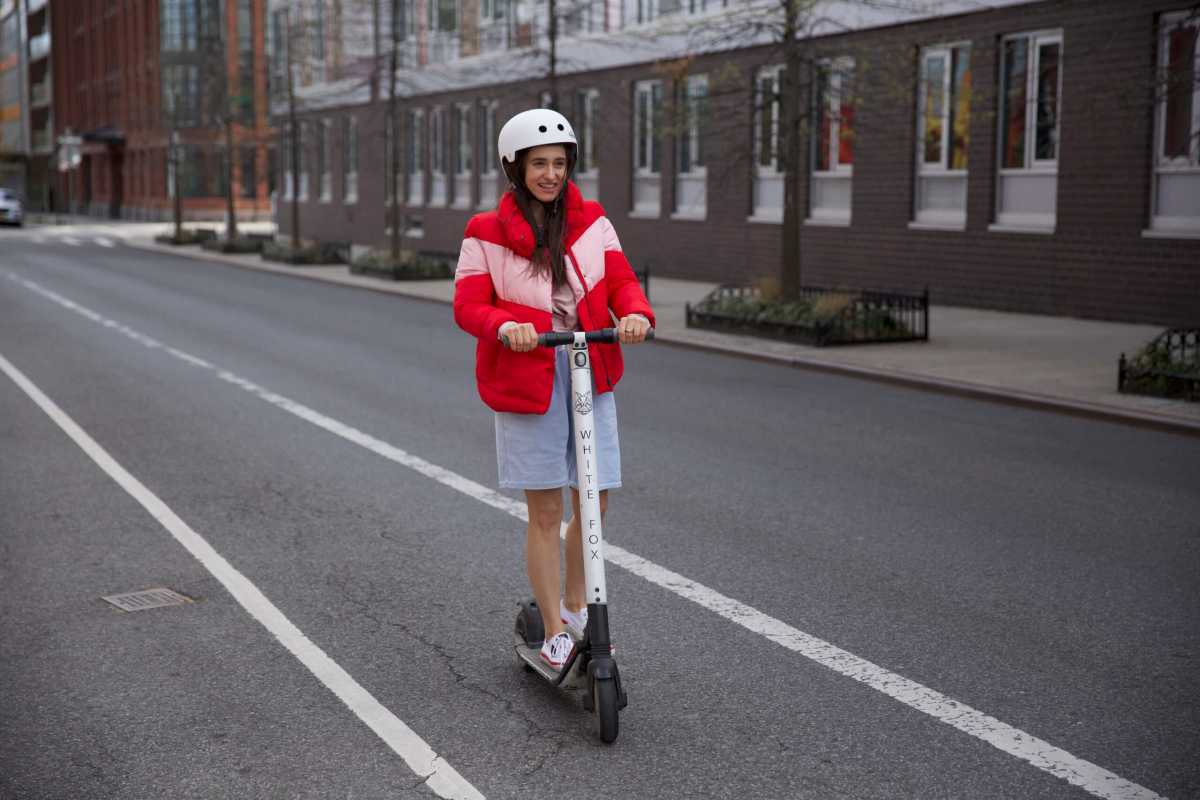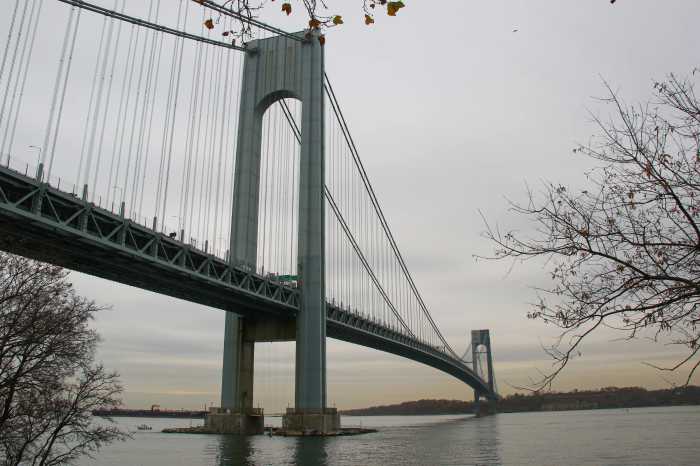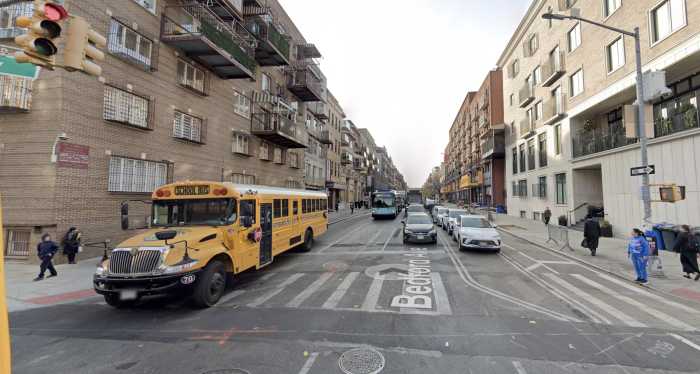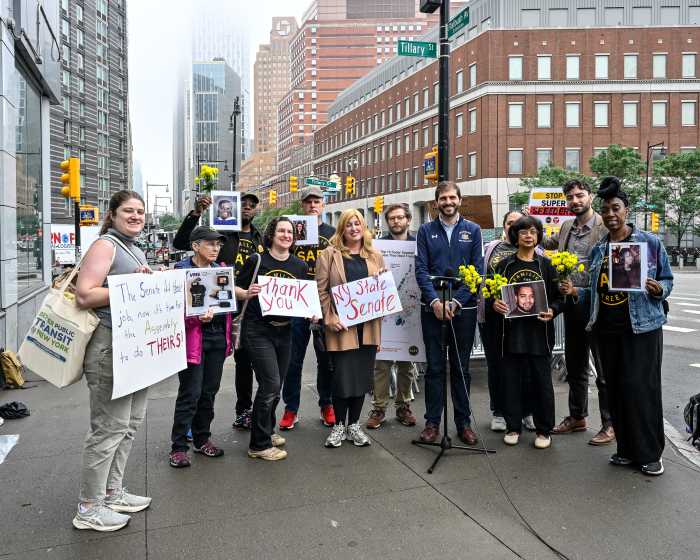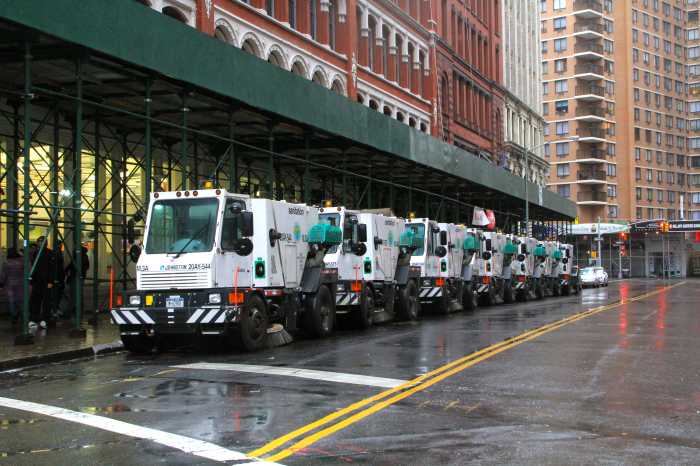In the wake of New York State’s legalization of electric scooters, New Jersey-based company White Fox Scooters recently rolled out the borough’s first e-scooter sharing service in Williamsburg, offering dockable e-scooters for Brooklynites to get around without breaking a sweat, said the firm’s founder.
“People want an easy commuting option that’s grab-and-go, less strenuous, but environmentally friendly,” said Siddharth Saxena, White Fox’s chief executive officer.
Unlike dockless e-scooters that have popped up in other cities, White Fox requires riders to park the two-wheelers at various docking ports around the borough — similar to the Citibike bike sharing program.
The company opened its first New York docking station with four scooters at the luxe William Vale hotel on N. 12th Street in Williamsburg on April 14, and plans to add another at the Union Hotel on Degraw Street in Gowanus this week, Saxena said.
By the end of the summer, Saxena says the firm plans to open up to 50 docks — which allow users 18-and-up to check out scooters with a tap on the company’s app.
Individual rides cost a flat $1 fee to start, plus ¢15 for each minute. Users can also buy unlimited rides for a day for $20, or a month for $99.
Scooters can travel up to 15 miles-per-hour, and their batteries can take you as far as 10 to 30 miles-per-charge, depending on the model, according to Saxena.
The app doesn’t let you conclude rides unless the scooters are secured into a docking station, and users face fines between $15 and $25 for leaving them in the street.
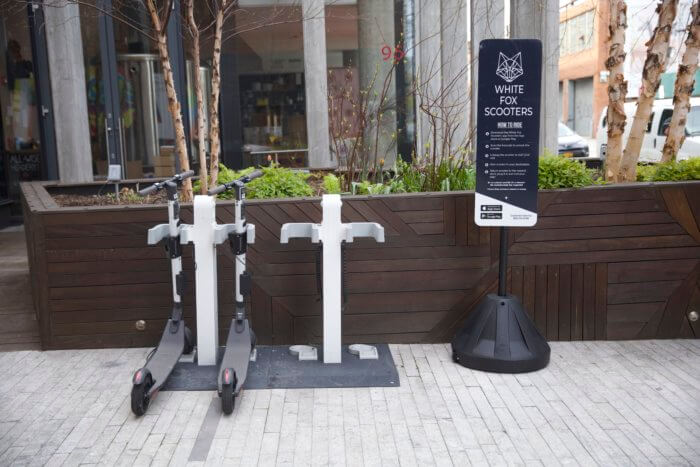
The company launched in Jersey City in August of 2019, and had been eager to scoot across the Hudson — which was finally made possible by a law change in the 2021 New York State budget, according to Saxena.
The firm has been allowed to continue operations amid the coronavirus pandemic and Governor Andrew Cuomo’s resulting stay-at-home order, as they are deemed an “essential” transportation company — and they’ve used that privilege to offer free rides to healthcare workers and emergency personnel, according to Saxena, who claimed staff will be sanitizing the scooters after every ride to reduce the risk of spreading the virus.
And yet, while they are still operating, much of their potential paying clientele has resisted traveling during the pandemic, causing other e-scooter share companies to struggle with plummeting demand — although Saxena remained hopeful that the relatively low-risk of contagion while riding a two-wheeler would make the scooters an attractive option for concerned Brooklynites.
“The demand that’s there is definitely not very profitable and lucrative right now, but we want to provide this transportation option because it’s safer than public transit and ride shares,” he said. “It’s one of the ways to get fresh air in a socially-distant friendly ways while being non-strenuous, non sweating and it gets you out and about.”


